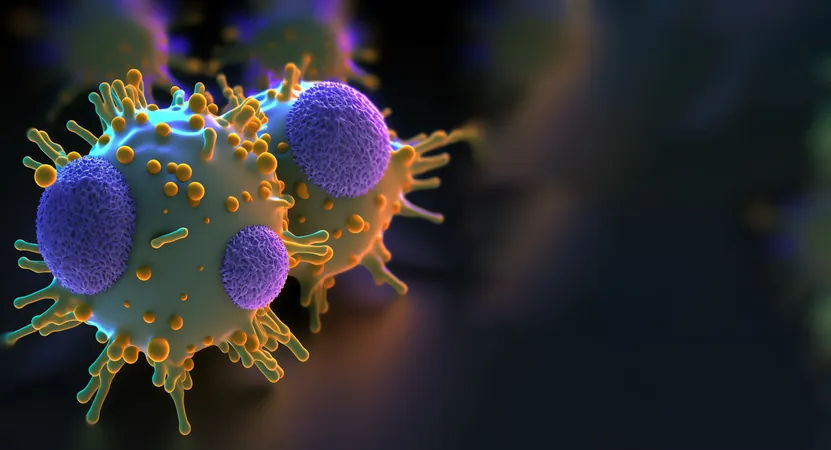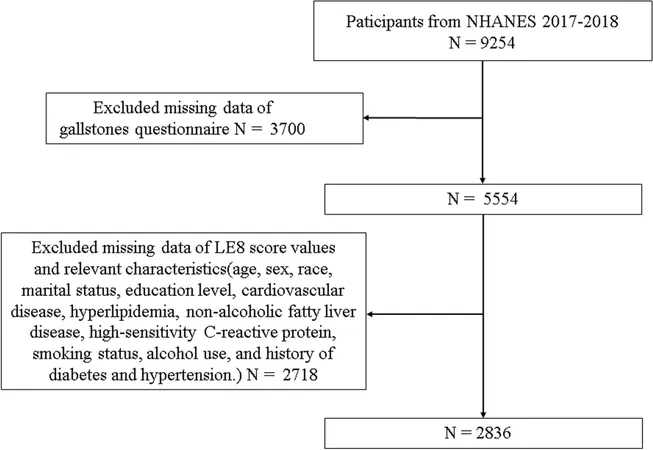
Revolutionary Study Reveals How Inhibiting Brain Enzyme Could Combat Obesity in Mice!
2024-12-16
Author: Siti
Groundbreaking Study on Brain Enzymes and Obesity
A groundbreaking study conducted by researchers at the Université de Montréal's affiliated hospital research center (CRCHUM) has revealed that targeting specific enzymes in the brain may offer new avenues in the fight against obesity. These findings, published in the prestigious journal *Nature Communications*, delve deep into the role of endocannabinoids—molecules produced by the body that influence food intake and energy usage.
Research Overview
For years, Professor Stephanie Fulton and her dedicated team at the Université de Montréal have been exploring the intricate mechanisms of the human nervous system that regulate appetite and physical activity. Their latest research discovery sheds light on how particular neurons in the nucleus accumbens—a brain region teeming with endocannabinoids—play a crucial role in managing body weight.
Focus on ABHD6 Enzyme
The focus of their study turns to an enzyme known as ABHD6, which is responsible for breaking down a significant endocannabinoid molecule called 2-arachidonoylglycerol (2-AG). Previous research from 2016 by Marc Prentki demonstrated that inhibiting ABHD6 throughout the body led to decreased body weight and provided protections against diabetes. This prompted Fulton’s team to investigate the specific actions of this enzyme in the brain and its influence on appetite regulation.
Unexpected Findings
Surprisingly, the researchers found that rather than increasing appetites as they expected, inhibiting ABHD6 in the nucleus accumbens led to reduced motivation for food in mice, while simultaneously increasing their willingness to engage in physical activity. The experimental mice exhibited a marked preference for spending time on a running wheel when compared to a control group that displayed signs of obesity and lethargy.
Implications of Targeted Inhibition
What sets apart this study is the discovery that the effects of ABHD6 inhibition can vary significantly depending on which area of the brain is targeted. In previous work, blocking ABHD6 in certain hypothalamic neurons actually caused mice to resist weight loss. However, the current findings highlight that a broader inhibition of this enzyme could effectively reduce weight gain when subjected to a high-fat diet.
Safety and Future Research
Moreover, the study reports no signs of anxiety or depressive behaviors in genetically modified mice that lacked the ABHD6 gene. This aspect is crucial, particularly following the controversial withdrawal of the weight-loss drug Rimonabant in the late 2000s due to alarming side effects, including depression and suicidal thoughts. Fulton's research indicates a safer potential pathway for developing obesity therapies with fewer adverse consequences.
Looking Ahead
As researchers continue to evaluate ABHD6 inhibitors, the ultimate question remains: Will these promising mechanisms yield similar results in humans? Early indications are hopeful, as scientists believe this pioneering research may pave the way for innovative treatments effective against obesity and metabolic disorders such as type 2 diabetes.



 Brasil (PT)
Brasil (PT)
 Canada (EN)
Canada (EN)
 Chile (ES)
Chile (ES)
 España (ES)
España (ES)
 France (FR)
France (FR)
 Hong Kong (EN)
Hong Kong (EN)
 Italia (IT)
Italia (IT)
 日本 (JA)
日本 (JA)
 Magyarország (HU)
Magyarország (HU)
 Norge (NO)
Norge (NO)
 Polska (PL)
Polska (PL)
 Schweiz (DE)
Schweiz (DE)
 Singapore (EN)
Singapore (EN)
 Sverige (SV)
Sverige (SV)
 Suomi (FI)
Suomi (FI)
 Türkiye (TR)
Türkiye (TR)